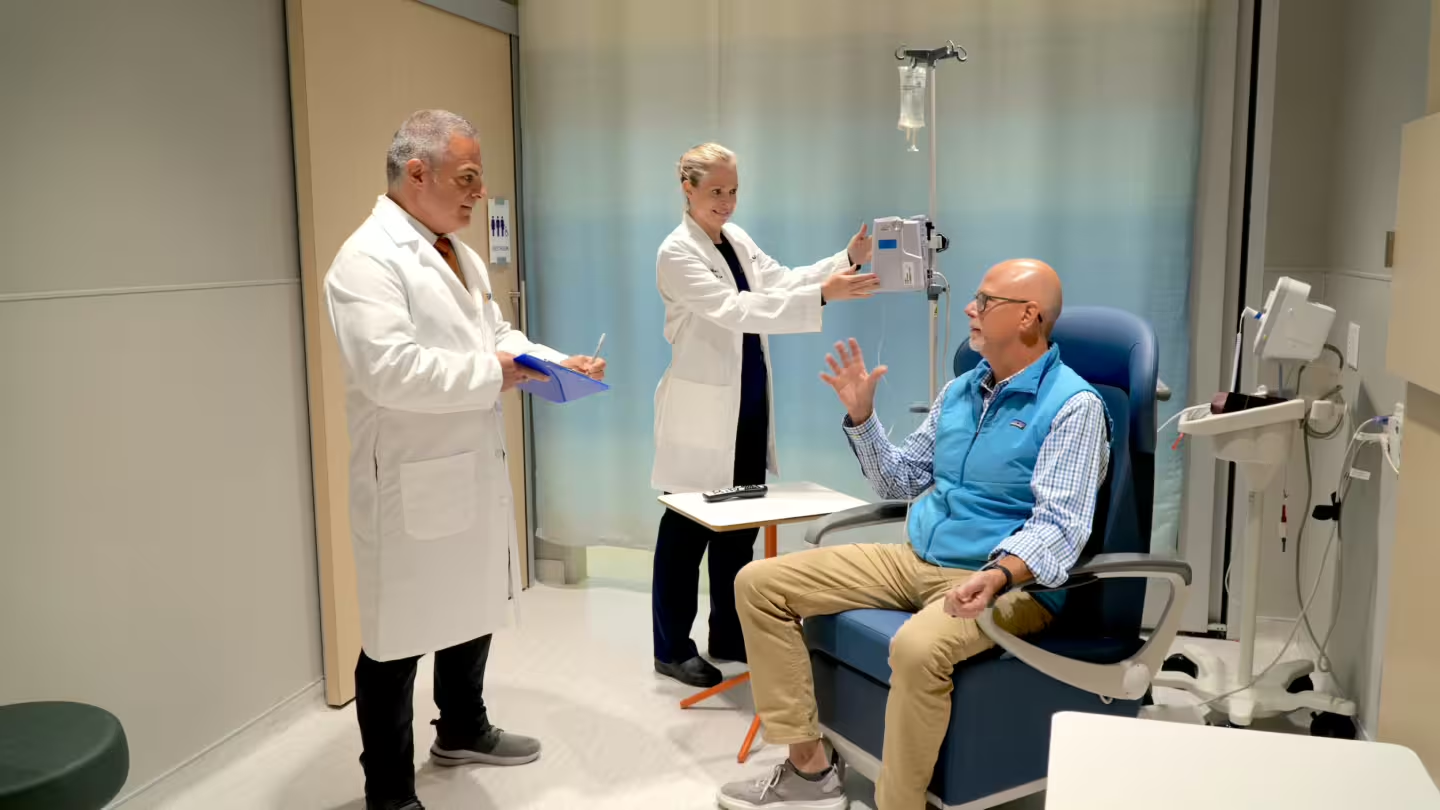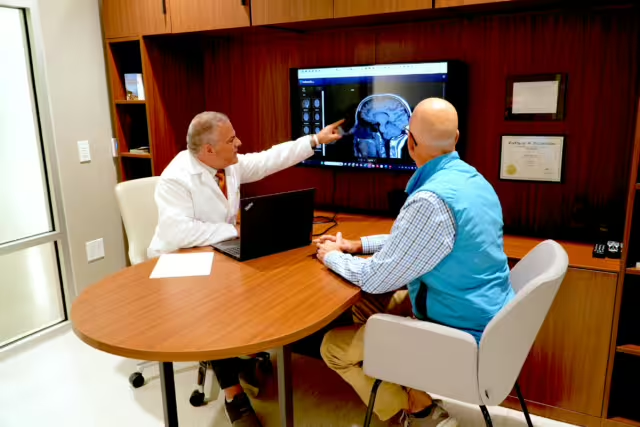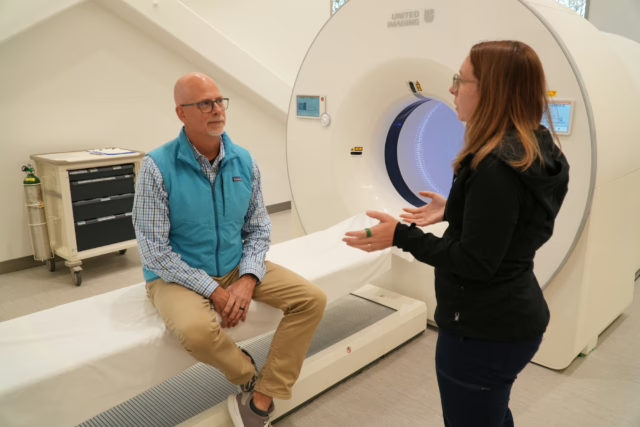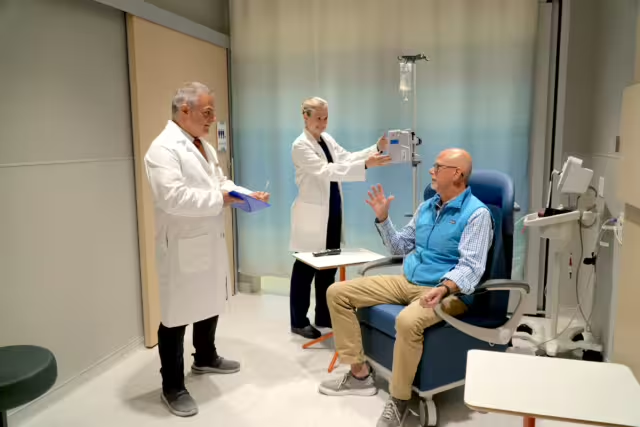
Maria loves gardening. Every spring she spends hours planting flowers in neat rows. But lately, things have changed. She struggles to remember the names of her favorite blooms and how to care for them. Her daughter has noticed Maria asking the same questions repeatedly about weekend plans and forgetting recipes she’s made for years. The small lapses are now piling up and raising concern. Could Maria have Alzheimer’s Disease?
Stories like Maria’s are all too common. Recognizing the early signs of cognitive decline is crucial because timely intervention can make all the difference. For conditions like Alzheimer’s disease or mild cognitive impairment (MCI), early detection opens the door to treatments that may slow disease progression and preserve quality of life.
Understanding Alzheimer’s Disease and Mild Cognitive Impairment
Alzheimer’s Disease is a progressive, neurodegenerative disorder that affects memory, thinking, and behavior. It’s characterized by the accumulation of amyloid plaque in the brain.

Almost 7 million people are living with Alzheimer’s in the U.S., and that is expected to nearly double by 2050. In Michigan, it’s estimated that in 2025, 220,000 people 65+ will have Alzheimer’s. That’s a nearly 16% increase in the last five years.
MCI is an early stage of memory loss and can be an early stage of Alzheimer’s if certain brain changes are present. As many as 8 million people in the U.S. may have undiagnosed MCI. According to the Alzheimer’s Association, MCI causes cognitive changes that are serious enough to be noticed by the person affected and by family and friends but do not affect the person’s ability to carry out everyday activities.
Identifying early-stage Alzheimer’s and MCI is critical for people to receive FDA-approved treatment. If the disease is too far along, treatment may not be an option.
Recognizing the Signs
The difference between normal cognitive difficulties associated with age and MCI is nuanced. The Alzheimer’s Association lays out 10 warning signs and symptoms, but here are five key signs to look out for:
Memory Problems
Difficulty remembering recent events or conversations, while older memories may remain intact.
Planning and Problem-Solving Challenges
Difficulty managing finances, following recipes, or keeping track of medications. One may have difficulty concentrating and take much longer to do things than they did before.
Confusion with Time or Place
Losing track of dates, seasons, or locations, which may result in getting lost in familiar areas.
Word-Finding Struggles
Struggling to recall common words or names during conversation. People may also stop in the middle of a conversation or have trouble joining a conversation.
Mood or Personality Changes
Increased irritability, anxiety, or withdrawal from social activities and hobbies. They may be easily upset at home, with friends, or when out of their comfort zone.
The chart below outlines how these symptoms compare to normal aging:
| Signs of normal aging | Signs of dementia |
|---|---|
| Not recalling information as quickly as they used to | Having difficulty, or an inability, to learn new information (or having trouble with familiar tasks and following directions) |
| Sometimes forgetting names or appointments but remembering them later | Forgetting recently learned information and increasingly needing to rely on memory aids (e.g., reminder notes); asking the same questions repeatedly |
| Occasionally needing help to use microwave settings or record a television show | Having difficulty driving to a familiar location, organizing a grocery list, or remembering rules of a familiar game |
| Sometimes having trouble finding the right word | Having trouble naming a familiar object or use the wrong name (e.g., calling a. Watch a “hand clock”); may stop in the middle of a conversation not knowing how to continue |
| Making a poor decision once in a while | Making poor judgements frequently |
| Missing a monthly payment once | Persistent problems managing bills |
| Forgetting which day it is and remembering it later | Losing track of the date or time of year |
| Misplacing things from time to time | Misplacing things frequently and being unable to find them |
What to Do if You Suspect Cognitive Decline
It’s never too early to discuss symptoms with a doctor. In some cases, changes to the brain begin 10-20 years before symptom onset, meaning when symptoms do arise, it’s important to act fast.
Start by scheduling an appointment with a primary care physician. If you or your loved one don’t have a PCP, BAMF Health offers expert Alzheimer’s consultations with a trusted provider. No referral needed.

A provider will assess your cognitive function, review your health history, and discuss the symptoms you’re experiencing. From there, an amyloid PET scan may be recommended to see if plaque is present in the brain. If your disease is still in the early stages and amyloid plaque is present, you may be a candidate for treatment.
While treatment has not been proven to reverse the effects of Alzheimer’s, it can slow progression.

A Brighter Future with Early Detection
The story of Maria and her struggles to recall names and follow recipes is not unique. But stories like that can have a hopeful outcome.
Too many lives have been lost to this devastating disease, and the treatments we have now are just the beginning. Continued research and investment in early detection methods and therapies mean progress is still being made.
BAMF Health is at the forefront of Alzheimer’s care and is a one-stop shop for evaluations, imaging, treatment, and follow-up care. We are now scheduling consultations and accepting new treatment patients.


